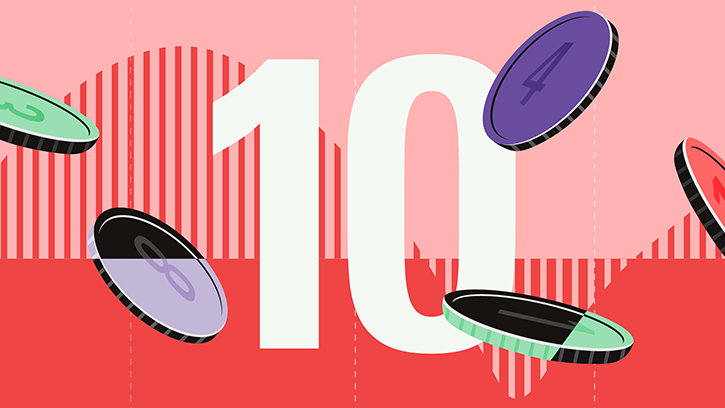
After working as stockbroker for Barclays Bank, UBS Phillips & Drew and Tullett Prebon, Terry Smith founded asset manager Fundsmith in 2010.
His flagship Fundsmith Equity Fund, which holds a Gold Morningstar Analyst Rating, has turned an initial £10,000 investment at inception into more than £35,000 today.
Taking a Warren Buffett approach to investment, Smith runs a high-conviction portfolio of high-quality businesses that will continually compound in value. His philosophy is to buy these companies and hold them, ideally forever.
His portfolio turnover is typically below 5%, with his sale of Domino’s Pizza (DPZ) in 2015 described in his annual letter to shareholders as done “with regret and trepidation”. He noted that while it had been the best performer the fund had owned at the time, the valuation was hard to justify.
The stock duly rose 45% through 2016. “I hope this demonstrates why I am reluctant to agree with the commentators who suggest that you or I should sell our portfolio of great companies and invest in a portfolio of assorted junk in the hope that it will go up. Great companies’ share prices will go down and we can then profitably reverse the trade,” he said in his 2016 letter.
His current portfolio amounts to 28 stocks, 12 of which have been there since inception. US firms Paypal (PYPL) and Microsoft (MSFT) account for almost 12%, followed by Spanish IT provider Amadeus (AMS) and Danish pharma Novo Nordisk (NOVO B). His latest high-profile buy was US social media giant Facebook (FB).
His 250% return since the fund’s inception is double that of Silver Rated passive fund L&G International Index Trust, which has seen gains of 125% since November 1, 2010.
The L&G fund tracks the FTSE World, ex UK, Index on a market capitalisation weighting basis. It holds almost 85 times as many companies as Smith, though Microsoft is still the second largest holding. Facebook is the only other crossover in both top 10s.
Over shorter periods the outperformance is less pronounced, but still impressive. In the five years to 5 April 2018 Fundsmith was up 129% compared to L&G’s 80%; over three years 66% plays 36%. Year-to-date, Fundsmith has also lost less than the index fund.
Can Smith’s Performance Continue?
It should be pointed out that Smith has only been running investors’ money for eight years, during an auspicious period for equities. As a result, Janus Henderson’s European equities fund manager John Bennett describes him as “a novice who’s only ever known a tailwind”.
Bennett’s argument that the return of volatility and change in regime for equity markets could catch some stockpickers out, with the value style of investing likely to return to favour. Still, he admits it could still be a few years until this happens.
Morningstar analyst Peter Brunt notes the style tailwinds that have benefited Smith since launch. However, he counters, “we believe Smith has added significant value above and beyond the fund’s style bias”.
“His track record on the Tullett Prebon pension fund also highlights his ability to add value over a market cycle,” he continues.
Smith also has significant ‘skin in the game’, investing heavily in Fundsmith’s offerings – the roster also includes the Fundsmith Emerging Equities Trust – aligning his interests with shareholders’.
An ongoing charge of 0.96% means the vehicle is “reasonably priced”, though the L&G fund’s 0.13% is significantly cheaper. It’s also one of the cheapest index funds that offer exposure to both developed and emerging markets, says Morningstar’s Dimitar Boyadzhiev.































